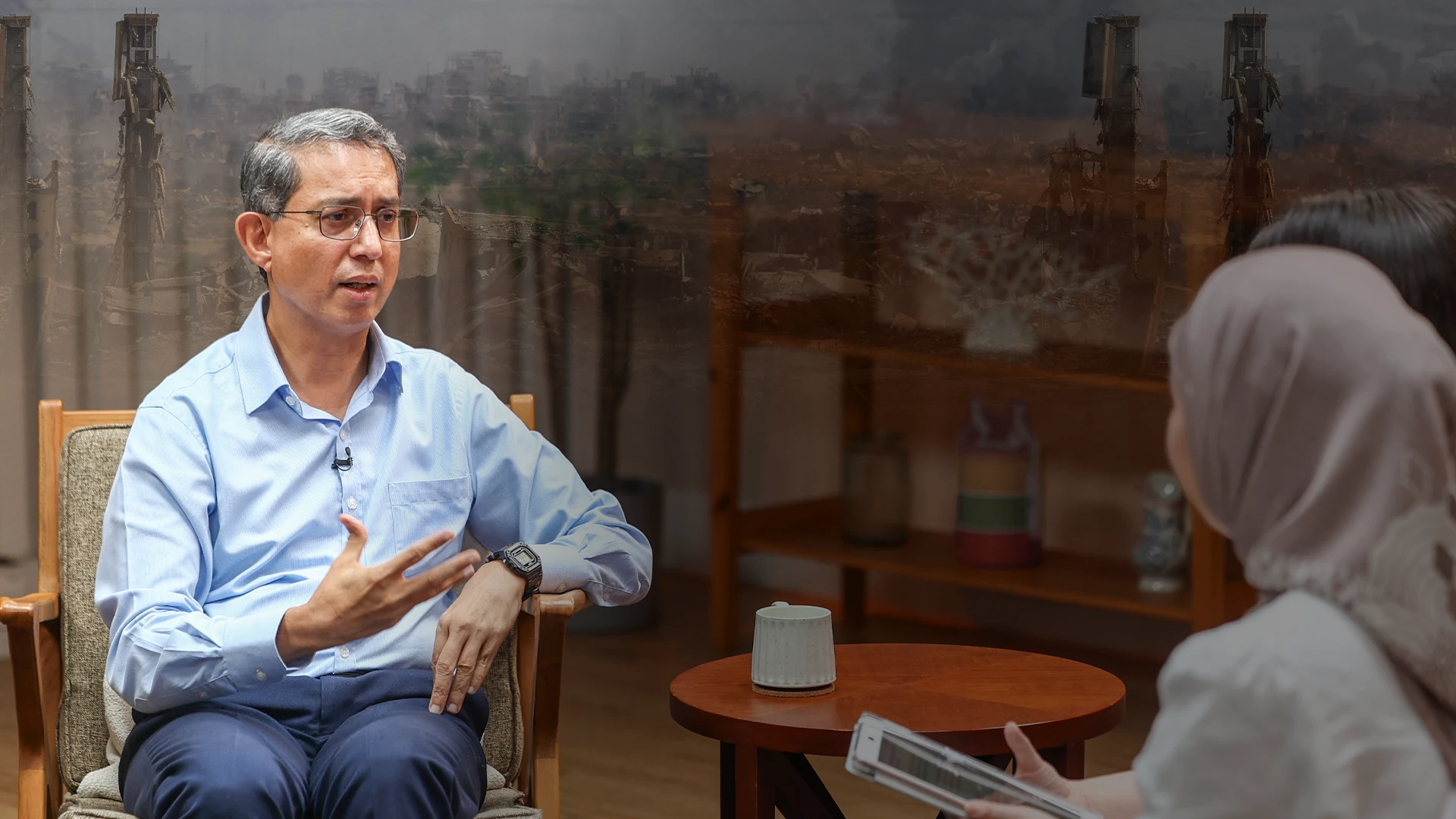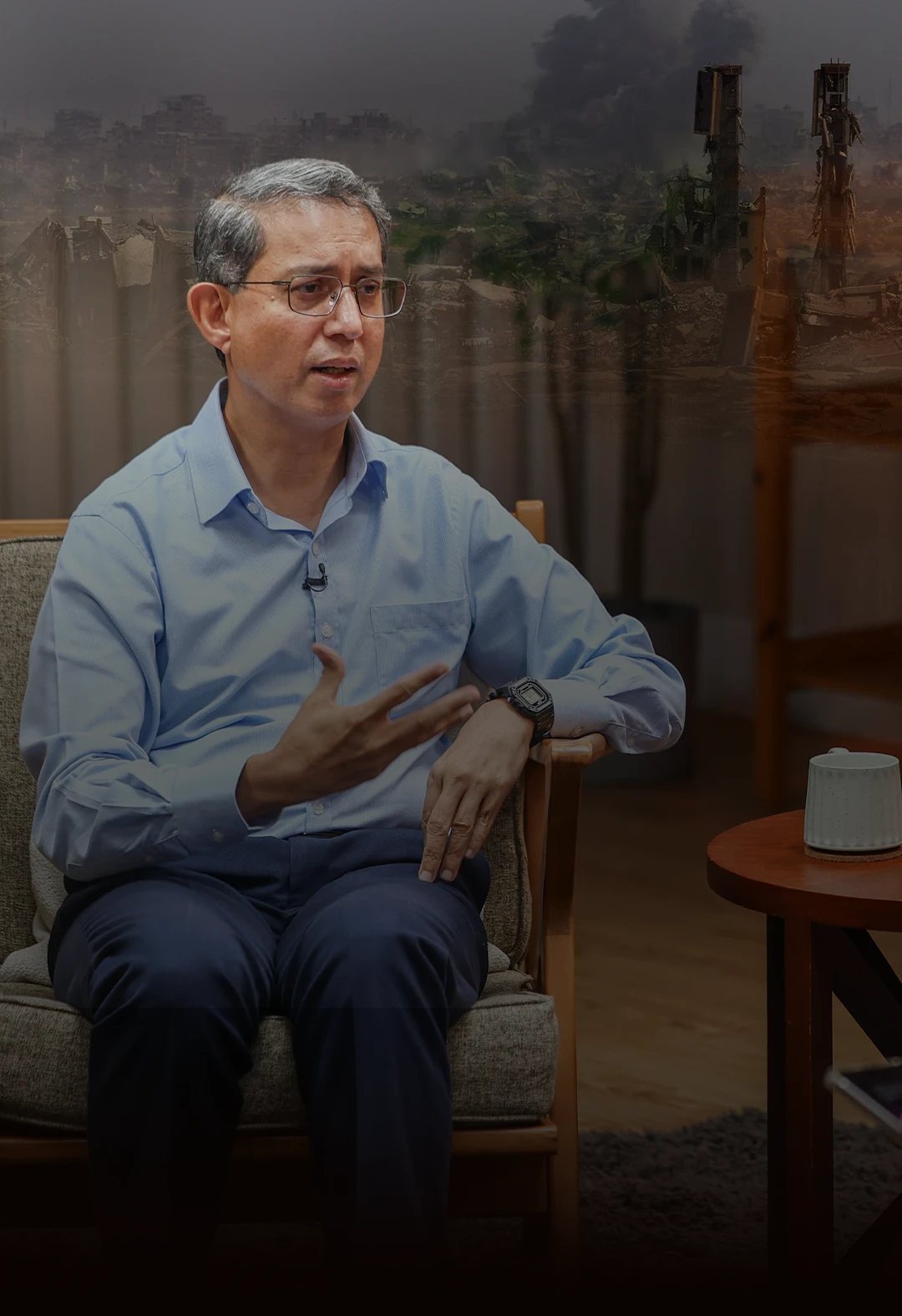Mishandling Gaza issue could shake foundations of Singapore’s multiracial society
Singapore must embrace the values of multiracialism and be clear about the 'red lines' that, if crossed, could threaten its harmony.
Mishandling sensitive topics like the Gaza conflict that are likely to trigger identity-based politics could threaten the foundations of a cohesive society that took decades to build, cautioned Acting Minister-in-charge of Muslim Affairs Faishal Ibrahim.
The situation in Gaza is a confluence of many intertwined issues and to look at it purely from a religious or ethnic lens is "not enough and inaccurate", reminded Associate Professor Faishal.
Prof Faishal, who is also Senior Minister of State for Home Affairs, was sharing his views at one of two dialogues organised as part of the Gaza Through Our Lenses series. His comments come on the back of Singapore's announcement through three ministerial statements in Parliament on 22 September, 2025 that it would recognise Palestine when it has an effective government that accepts Israel’s right to exist and categorically renounces terrorism.
At an earlier roundtable dialogue convened on 9 September, 2025 before the statements were delivered, some participants called on the government to carve out greater civic spaces for Singaporeans to express solidarity with Gaza through peaceful activities.
Others raised concerns about how the burden of maintaining racial harmony in Singapore often falls disproportionately on the Malay/Muslim community.
Prof Faishal, in his interview at the second dialogue with Lianhe Zaobao and Berita Harian, addressed and responded to each of these points. He also shared how he had received a wide range of feedback, after delivering the ministerial statement on Gaza in Parliament.
"There were groups who said we should recognise [Palestine]. Another group said no…But I think the large majority agree that Singapore should put its national interest first," he said. "This is about protecting you and me – protecting all Singaporeans and safeguarding the future of Singapore."
Safeguarding and prioritise national interests
Over the course of the nearly hour-long interview, Prof Faishal reiterated several times that Israel’s actions in Gaza had gone too far. He also emphasised no fewer than 10 times that Singapore must prioritise the safeguarding of its national interests in any decision it makes.
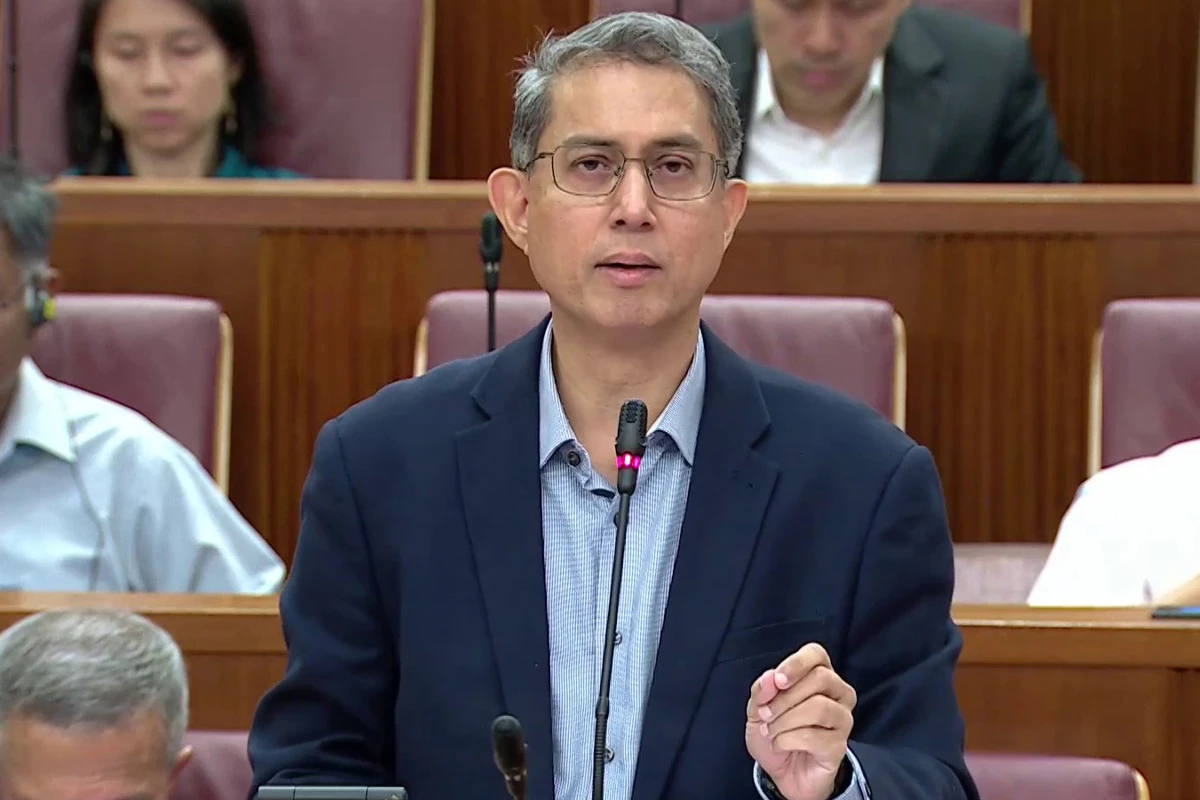
In recent months, as more countries such as the United Kingdom, Canada, Australia and Portugal officially recognise the Palestinian state, calls for Singapore to take the same step have grown louder. In response, Prof Faishal emphasised that each country has its own foreign policy and rationale for making the decision to recognise Palestine, Singapore is no exception.
Our foreign policy hinges upon the national interests of a multiracial, multireligious Singapore set in a Southeast Asia context, he said.
Maintaining national unity, ensuring the security of Singapore and upholding international law should be our priorities, he added.
Yet as the situation in Palestine continues to unfold unpredictably, Singapore’s position has evolved accordingly. Now it is about "when, rather than if" Singapore will recognise Palestine formally, Professor Faishal said, adding that it also has announced plans for the imposition of targeted sanctions.
"It shows that Singapore continuously watches the development [in Palestine] closely. We have our national interests to look after, but at the same time, we want peace."
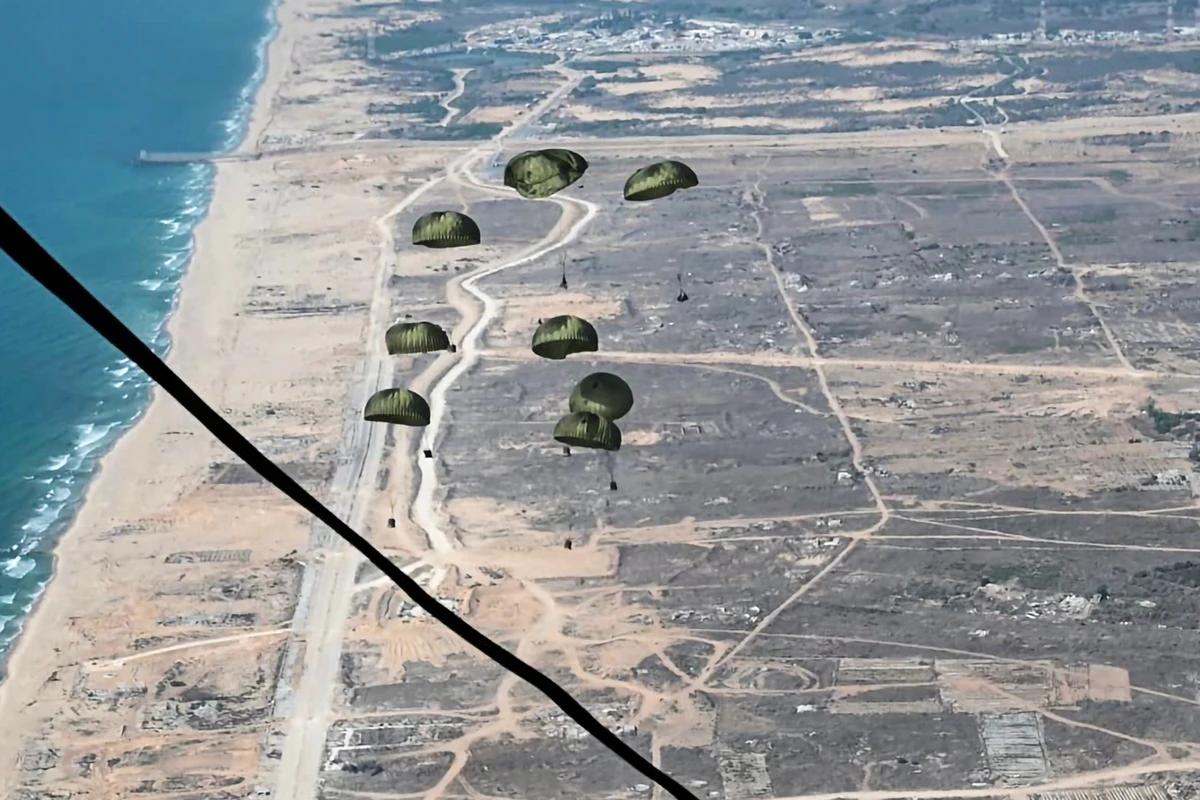
Religion and theological beliefs can complicate discussion of the Gaza issue, and in Singapore, the war in Gaza resonates deeply within the Malay/Muslim community. But in the interview, Prof Faishal cautioned against seeing Gaza solely through a religious or racial lens as it is "not enough and inaccurate".
He said: "As such, it is important for [the government] to engage the ground to help people understand how and why [things have developed the way they have in Gaza]."
During Singapore’s general elections in May 2025, the conflict in Palestine was also in the spotlight and related public discourse showed signs of identity politics coming into play. In their ministerial statements delivered on 22 September, 2025, Foreign Minister Dr Vivian Balakrishnan and Senior Minister of State for Foreign Affairs Sim Ann both warned that Singapore cannot allow external events and actors to cause fissures domestically.
Asked whether the Gaza issue risked deepening racial or religious divides in Singapore, Prof Faishal acknowledged the possibility and cautioned that this has happened in many other countries.
Social cohesion built on multicultural ecosystem
But he also stressed that Singapore is unique in that we have been living in a society that is relatively cohesive – it is built on values of mutual respect and backed by laws that support our multicultural ecosystem, "not to punish anyone but to provide conducive levers, to make sure we do not go beyond certain red lines".
While he described these foundations enabling an ecosystem that has helped the country maintain harmony over decades as "social capital", Prof Faishal acknowledged that the Gaza issue can still trigger strong emotions. While interacting with residents during the election campaign, he said he had observed firsthand how Gaza could surface sensitivities within the society.

The key point is that the society must embrace multiracialism and it must know some of the red lines. The responsibility lies [not just on] the government, it should also be on all political parties, organisations and individuals.
Assoc Prof Muhammad Faishal Ibrahim
Acting Minister-in-charge of Muslim Affairs
Senior Minister of State, MHA
Government does not stop anyone from expressing views
The government does not stop anyone from expressing their views on Gaza, but these discussions should prioritize Singapore's national interest and be conducted constructively, meaningfully, and respectfully to foster understanding rather than division, said Acting Minister-in-charge of Muslim Affairs Faishal Ibrahim.
Prof Faishal was responding to concerns raised by participants at the earlier Gaza Through Our Lenses roundtable dialogue. All six participants had agreed that, while challenging, creating safe spaces for open and honest dialogue on sensitive topics would be a worthwhile effort in Singapore.
“We don’t stop anyone from expressing their views. They can share their views on [Gaza], but we know that this may cause undesirable outcomes,” said Prof Faishal.
To illustrate his point, he recounted a real-life incident shared by a friend who was studying overseas. A peaceful gathering had been organised for students to discuss the Gaza situation; all went smoothly, until one participant made an offensive remark.
Attendees quickly advised each other to keep the comment under wraps. But word leaked, and those who felt offended began planning a counter-event in response. Tensions escalated, triggering a chain reaction that eventually forced the university to suspend in-person classes and shift to online learning.
“So we don’t take things lightly,” Prof Faishal cautioned, adding that Singaporeans “should never underestimate” how quickly situations can spiral even when events are organised with good intentions, as shown in the incident he described.
He stressed the importance of continuing to provide platforms for discussion and engagement on Gaza with the intention of helping people in Singapore understand the complexities of the issue, and how they can come together to offer support in meaningful ways.
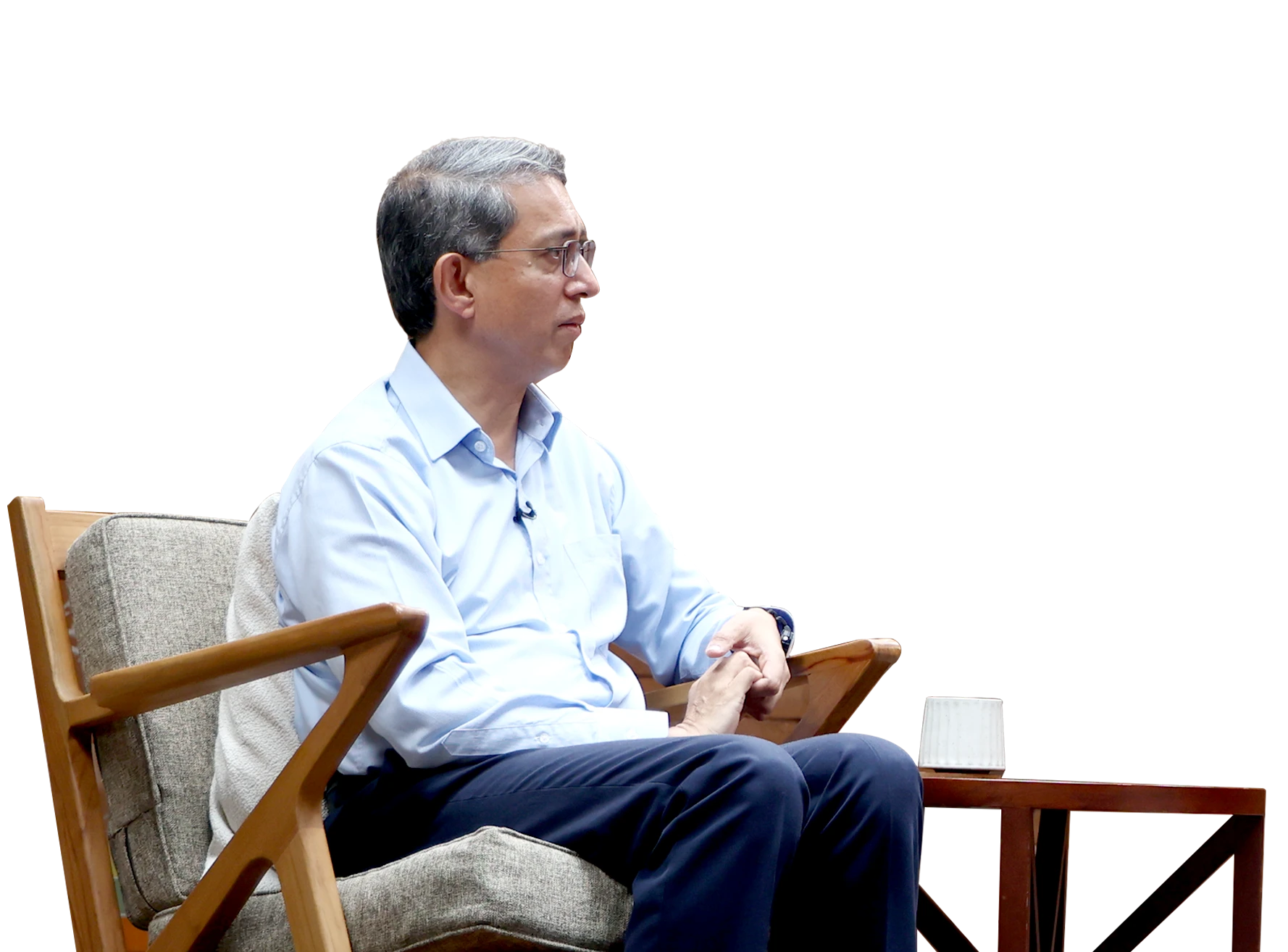

Perspectives
Shouldering Singapore's harmony, a shared responsibility
In a diverse society, events that touch on racial or religious sensitivities, whether domestic or foreign, can sometimes affect one community more profoundly than others.
For Singapore, the responsibility of protecting the social fabric of our multiracial nation is shouldered by everyone, and should not fall on only one community, said Prof Faishal Ibrahim.
Acting Minister-in-charge of Muslim Affairs Faishal Ibrahim was responding to the concerns raised by some participants at an earlier dialogue convened for the Gaza Through Our Lenses series. A participant lamented that the Malay/Muslim community often carries a disproportionate burden in maintaining social harmony.
For example, one participant then observed that when a terror attack occurs outside of Singapore, local Muslims and the entire community would be familiar with making statements to immediately condemn the incident, distance themselves and say that Islam does not stand for such acts, even when no one was directly involved in carrying out the act. "That has almost been our ‘autopilot response’ whenever something happens," the participant said.
In response, Prof Faishal said: "There are times when some external issues or incidents affect a community more than others. In this instance, while what is happening in Gaza affects all Singaporeans, I think it affects the Muslim community more. You can’t deny that…But there may be other instances when an external event touches on the larger Chinese community and the local Chinese may feel more strongly [about it]."
Issues like Gaza resonate differently across communities
It is understandable that certain issues resonate more deeply with some communities than others, given differences in our emotional responses and world views, he added, stressing that the responsibility of building a multiracial society should be borne by everyone.

We need to work together. To say that [the responsibility] falls more on the Malay-Muslim community – I think that is a statement that we perhaps need to dwell deeper on [and reflect on] how each and every community has played a part, how each incident or issue resonates with different communities.
Assoc Prof Muhammad Faishal Ibrahim
Acting Minister-in-charge of Muslim Affairs
Senior Minister of State, MHA
The Singapore government has previously reiterated that the Gaza issue transcends racial and religious boundaries – and that it is a humanitarian crisis. Despite the clarification, Prof Faishal said he has heard a diversity of views on the Gaza issue, including that some see Gaza’s ordeal as a consequence of the actions of Hamas, the militant Palestinian organisation in control of Gaza.
He cautioned: "We should never underestimate the effects of differences in a multiracial setting…Differences in our everyday lives will showcase a gap, they can be a plus, but if not well taken care of, these gaps can become deep-seated and lead to negative outcomes."
During a previous discussion, a participant highlighted that the Malay/Muslim community's deeper concern in the Gaza issue is due to their greater understanding of its historical and political context. It was proposed to explore ways to help non-Muslim communities also grasp this context.
But Prof Faishal observed that the sheer scale of devastation in Gaza is enough to move people simply from a place of shared humanity, even without fully knowing the historical or political context. "Because the extent is just too deep and the Israelis have gone too far."
"We are all being clouded by death and devastation," he said. "Even if we want to go deeper into the cause and the history of what is happening in the region, [the complexity] makes it difficult for people to know and appreciate it. That, in itself, presents a stumbling block in understanding."
